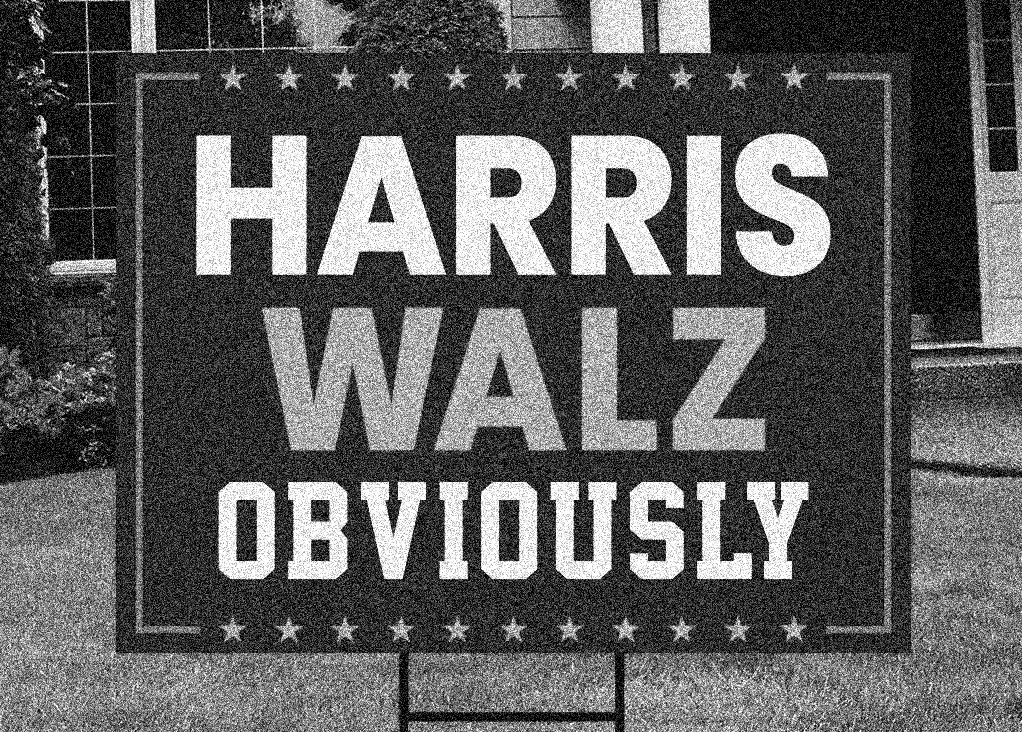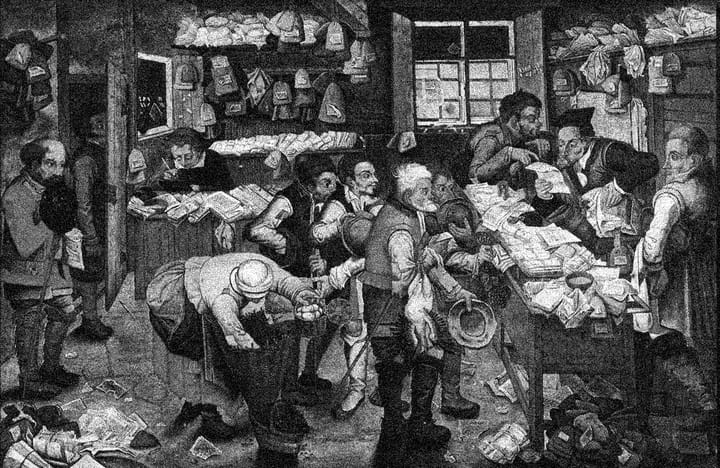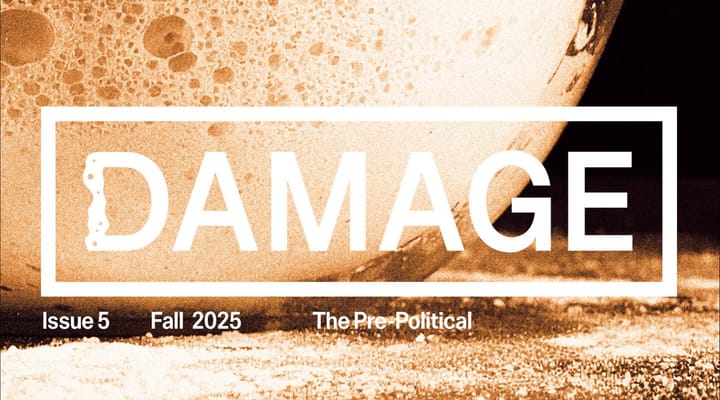Obviousness, Scorn, and Losing Ground
“Harris. Walz. Obviously.” is a slogan that says more about the Democratic Party than about Trump.

To feel sane, a good many things need to be obvious: that the floors of the rooms we walk into will hold up under our weight, and that sidewalks and roads will too; that the route we take to work, or the store, or our friend’s place will remain a viable option for getting home; that air will be breathable, water drinkable, and sleep more days than not, restful.
In many ways, and in many places, some or all of the things we may need to be obvious are not. Levees break, bridges collapse, buildings crumble, but the need to move in the world as if it is obvious that the floor will hold remains psychologically important. Without it, we feel terrified for ourselves, and look mad to others.
Obviousness grounds all people in a sense that experience can be both coherent and ongoing, but telling someone what is “obvious” is often an expression of scorn and contempt. Think of the arguing couple, where one starts telling the other what is “obviously” missing from their side of the story. There are few scenarios where that doesn’t escalate quickly.
The use of “obviousness” as an expression of scorn shows up in politics too. “Harris. Walz. Obviously.” is a slogan that’s out there on t-shirts and yard signs. It reassures those in the know about where the floor “really” is. Anyone who doesn’t agree is simply, out of madness or stupidity, blind to what is real, clear and true. It shunts aside any possibility that there are material reasons for political conflict, and assumes a patronizing stance towards anyone who might not see the “obviousness.” It is a contemptuous sneer towards any need for political contestation, and dismisses any possibility of bringing those struggling between candidates or those struggling with the decision to vote at all into the political process on equal footing.
Now there are perfectly good arguments to be made that a second Trump presidency would have any number of deleterious effects on American society. But in place of those arguments, we just get obviousness, which in turn creates a kind of impasse—a communicative dead end and a nauseating sense that American Politics is continuing to swirl down the drain. The Center for Working Class Politics recently found that messages stressing what for liberals are the obvious reasons for voting against Trump—those focused on threats to democracy, criminality, and his plans to punish political enemies—carried far less weight with working-class voters than messages focused on progressive economic policies and the condemnation of billionaires and big corporations. People want to know that the politician they vote for will fight to ensure their economic security. It is an ineffective strategy to tell voters that their choice should be “obvious” given the moral character of the candidates.
In her book The Thinking Heart: Three Levels of Psychoanalytic Therapy with Disturbed Children, psychoanalyst Anne Alvarez writes about working with an autistic child who kept wanting to know what was under each layer of carpet and flooring. She describes accidentally sending him into a panic by interpreting the instability of his world and his fear of falling forever. Later she came to believe that he might have been better able to use her and the therapeutic relationship if she had said something that he could approach at his own pace. To my mind that could be a comment like, “it is so important to be certain that something holds it all up.” To live without a sense of a stable floor is a terror; few people can tolerate having it pointed to directly.
Obviousness as a tool of (liberal) political rhetoric can be thought of as providing a floor to a false self. “Harris. Walz. Obviously.” reinforces a certain kind of narcissistic need to deny difference and conflict by claiming the other has no solid ground on which to build, is only selling McMansions built on sand, is not just someone who has no leg to stand on but is predatory in their efforts to fool people into thinking that there is a there there.
Again, this might be perfectly well true, in that a litany of cogent arguments could be marshaled to demonstrate the emptiness of the Trump campaign. The important thing here is not that the critique of the other side is untrue but that it may well be true while also being projection. “Harris. Walz. Obviously.” is a form of disavowal and placement “over there” of something equally true about the Democrats, who may also have little “there” on which to ground their campaign. It places the threat of falling through the floor on outside forces while abandoning the need to supply voters with a solid platform.
When working as a couples psychotherapist, one often sees that the most intransigent projections (disavowals of something about the self that are ascribed to the other) are the ones that have some quality of truth to them—such as the husband who disavows his own critical attitude and perfectionism and can only see and lament his wife’s nagging (and whose wife really does nag him horribly). He can’t see that his criticism applies just as much to himself as to his wife, or that he has perhaps picked a partner precisely because her nagging will allow him not to see something painful about himself. It does no good to say “look, you’re both doing it,” because if the husband could tolerate hearing this about himself he might be able to say “at times we are both harsh,” rather than identifying his wife as the font of all criticism. From his perspective there is a truly polarized situation, one partner a persecutor who always does, and the other a victim who is always done to.
“Harris. Walz. Obviously.” functions similarly. It’s a disavowal of the idea that there might be anything “obviously” wrong with the liberal platform that functions by putting attention squarely on the other. This creates a situation where a winning strategy—commitment to and emphasis on making the kinds of material differences in people’s lives that give them a floor beneath their feet—is neglected in favor of scorn and self-aggrandizement.
■
Benjamin Fife lives in California, obviously.



